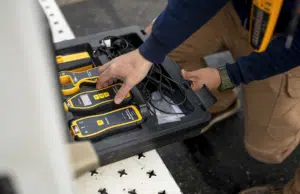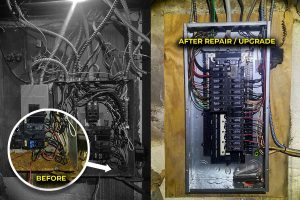We’ve all been stuck in a power outage before. It gets boring, it gets dark, and if it lasts for long enough, you have to toss everything from your fridge and freezer into the trash. Severe enough storms can even cause blackouts for days on end. If you think putting in a generator sounds like a good idea for you and your family, take a look at this list of things to consider before buying a whole-house generator.
Output
When buying a generator, one of the most important things is to make sure you buy the correct size generator to meet your power needs in the event of an outage. Accurately sizing a generator can mean the difference between maintaining your important appliances or getting limited power and having to choose what’s most important. In most cases, a higher power generator is only needed for large buildings that house company operations or industrial uses. You probably only need a small to medium-sized generator for your home, but it’s best to start by assessing your power needs and sizing your home to accommodate a generator.
Fuel
Because they are connected to the main gas network, natural gas generators do not require fuel storage. The generator will run and perform as needed as long as your utility service is not disturbed. A diesel base tank, which is linked to the unit’s base, is required for diesel generators. If the tank is smaller, it will require more frequent refueling. As a result, greater diesel fuel reserves may be necessary, or an emergency stock of diesel fuel may be required.
Autonomy
If you don’t always have someone at home, it might be a good idea to purchase an Automatic Transfer Switch (ATS), which will activate the generator on its own in the event of a power outage. When electricity is restored, the generator will automatically shut down. Without an ATS, someone must be there to manually turn the generator on in the event of a power outage, and someone must also physically turn the generator off once power is restored. This is useful in case a power outage occurs while you’re out of town—you can rest assured knowing your frozen and refrigerated items won’t spoil. As such, that makes an ATS one of the most important things to consider before buying a whole-house generator.
If you own a home, buying a generator is a good investment. You’ll be able to keep your fridge and freezer running, and if you have necessary medical equipment at home, you can know that it will still be operational as well. Do your research on the output you’ll need, the fuel you’ll use, and whether an ATS would be best for you, and you should be set for installation! Give the whole-house generator installers at No Shorts Electric a call and set up your appointment today!



